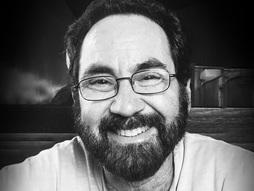
Philip Lubin
Why you should listen
Philip Lubin is a professor of physics at UC Santa Barbara and director of the UCSB Experimental Cosmology Laboratory. His research primarily focuses on the early universe, studying the millimeter wavelengths bands and applications of directed energy for planetary defense and relativistic propulsion. His group designed, developed and fielded more than two dozen ground-based and balloon-borne missions and helped develop two major cosmology satellites.
Lubin's group first detected the horizon scale fluctuations in the Cosmic Microwave Background from both their South Pole and balloon-borne systems in 1991, and their latest results, along with an international teams of ESA and NASA researchers, are from the Planck cosmology mission, which mapped the structures of the early universe in detail. His group has worked on applications of directed energy systems for both small-scale single launcher solutions and large standoff systems for planetary defense and on applications to allow small interstellar probes.
Lubin is co-recipient of the 2006 Gruber Prize in Cosmology along with the COBE science team for their groundbreaking work in cosmology as well as the 2018 Gruber Prize in Cosmology along with the Planck science team for their determination of fundamental cosmological parameters. He has published more than 450 papers.
